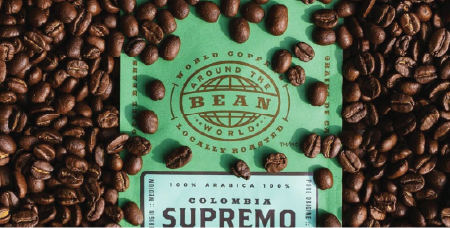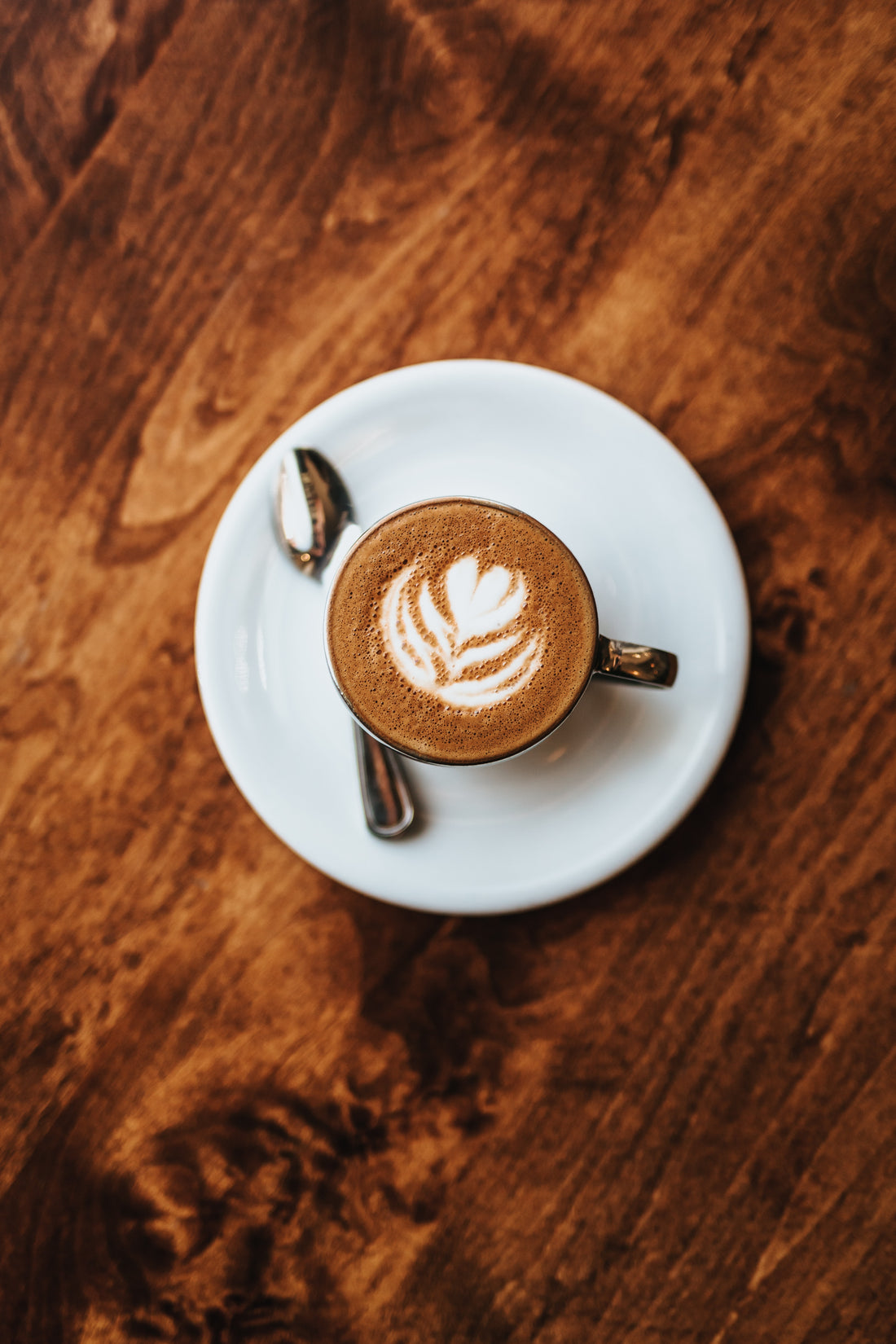If you’re anything like us, you can’t start the day without a nice cup of coffee.
One hot, comforting cup makes all the difference, giving us a boost in energy and mood, and the confidence to take on the day.
But how much do we actually know about the caffeine content of our favourite beverages?
While coffee offers a multitude of benefits, consuming too much caffeine while lacking rest and nutrients can cause discomfort like anxiety and jitters.
Caffeine affects everyone differently. Even with sensitivities, everyone can benefit with a little knowledge.
Read on for the extensive Bean Around the World caffeine guide, covering:
- The health benefits of caffeine consumption
- What affects coffee caffeine content
- Caffeine guide: from chocolate to espresso to energy shots
- Steps you can take to minimize caffeine jitters
The Health Benefits of Caffeine Consumption
The benefits of coffee to our moods in the morning are clear. We feel alert, energized, and ready for what the day will bring. There are many hidden health benefits to balanced caffeine consumption as well.
For instance, a review of 18 studies with a total of 457,922 participants found that coffee consumption is linked to a significantly reduced risk of type 2 diabetes.
One study found that regular coffee drinkers have a 60% lower risk of developing Alzheimers and dementia. While great as a preventative, it should be noted that caffeine can worsen symptoms for those who already have Alzheimer's.
Coffee is also loaded with several powerful antioxidants, including hydrocinnamic acids and polyphenols.
Hydrocinnamic acids are very effective at neutralizing free radicals and preventing oxidative stress - both of which would damage cells, causing illness and aging. Polyphenols in coffee may also lower risk of heart disease and cancer.
Of course, overdoing it can cause issues. Too much caffeine can lead to anxiety, sleep disruptions, heart palpitations and restlessness. Caffeine, like most things, is only good when consumed in moderation.
While up to 400mg of caffeine is safe for most healthy adults, everybody is different. Some are genetically more sensitive to caffeine.
To reduce bodily stresses from too much caffeine, let’s take a look at what factors affect caffeine content in coffee.
What Affects Caffeine Content in Coffee?
There are many types of coffee beans available, which may naturally contain different amounts of caffeine. For example, the Arabica bean contains 1.5% caffeine, while the Robusta bean contains 2.4%. And because darker coloured beans require a longer roasting time which burns caffeine off, lighter coloured coffee beans tend to have higher caffeine content.
Are you a fan of light roasts or darker roasts? Yes, roasting also impacts caffeine content. Dark roasts, though bolder in taste, contain less caffeine than light roasts.
The caffeine in your coffee can vary depending on the type of coffee you order. Are you getting a regular brewed drip coffee… or an espresso based drink? Are you getting a cold brew… or French pressed? Are you getting a pour-over… or a decaf? This all varies - and you’ll find out how in the next section.
The Ultimate Caffeine Guide
If you find yourself getting jittery after a few cups of coffee, have no fear - this doesn’t mean you need to kick caffeine altogether. With a little bit of education and experimentation, you will find the right dose of caffeine to give you a boost without the anxiety. Read on for our comprehensive caffeine guide.
There are 43 mg of caffeine in 100g of dark chocolate, and 20 mg of caffeine in 100g of milk chocolate.
An 8 oz cup of brewed coffee contains about 96 mg of caffeine.
An 8 oz cup of brewed decaf contains 2 mg of caffeine.
1 oz of espresso (used in espresso based drinks like lattes and cappucinos) contains 64 mg of caffeine.
Cold brew is a type of coffee made by steeping ground coffee beans in cold or room temperature water for 8–24 hours. An 8oz serving typically contains about 100mg of caffeine - though Bean Around the World’s Cold Brew contains 150 mg.
An 8 oz cup of a Pour Over coffee contains a whopping 175 mg of caffeine.
Depending on your brewing time, an 8 oz cup made with a French Press can contain 80-135 mg of caffeine.
An 8 oz cup of hot black tea contains about 47 mg of caffeine.
An 8 oz cup of green tea contains only 28 mg of caffeine - although matcha can contain up to 35 mg.
An 8 oz glass of cola contains about 22 mg of caffeine.
8 oz of typical energy drinks contain about 72 mg of caffeine.
2 oz of concentrated energy shots vary from 222-400 mg of caffeine.
Pre-workout supplements contain anywhere from 150 mg to 300 mg per serving. If you’d like to try another form of caffeine before your workouts, we suggest the Bean Around the World Cold Brew, which contains 150 mg.
Minimize Caffeine Jitters
Everyone metabolizes caffeine differently.
Our age, genetics, weight and tolerance all affect how quickly we can process caffeine.
When we consume too much caffeine, we experience bodily stressors like excessive sweating, increased blood pressure, heart palpitations and jitters.
You can avoid this discomfort by adjusting the type of coffee you drink using our guide above, and taking note of the following tips:
Stay mindful of your symptoms.
As soon as you notice any uncomfortable symptoms - resist the urge to refill your cup - unless it’s with decaf. Know that over the counter pain relievers like aspirin can contain 40-60 mg of caffeine, so it's best to avoid this when you're already feeling jittery.
Stay hydrated.
That's right - water, as always, is the answer. Caffeine can quickly dehydrate us - and dehydration amplifies those jitters. Flush the physical discomfort out of your system with lots of water. Better yet? Balance out every cup of coffee with a glass of water.
Take a walk.
If you're feeling restless because of too much caffeine, take it as a sign to head outside for a brisk walk. Movement will help you get that frenetic energy out and reduce your jitters.
Deep breaths - in and out.
Increased heart rate as a result of too much caffeine can heighten our feelings of anxiety. Is your breathing shallow? Surface breathing will only make your anxiety worse. Close your eyes, slow it down and take deep breaths through your nose - filling up your diaphragm and exhaling slowly. Do this for 10 deliberate breaths and feel a wave of relief.
Join us for a cup.
Anyone can reap caffeine’s bean-efits - even those with sensitivities - with the right knowledge.
We hope this article helps you understand your morning cup of coffee a little bit better!
And we’ll see you soon at Bean Around the World.


